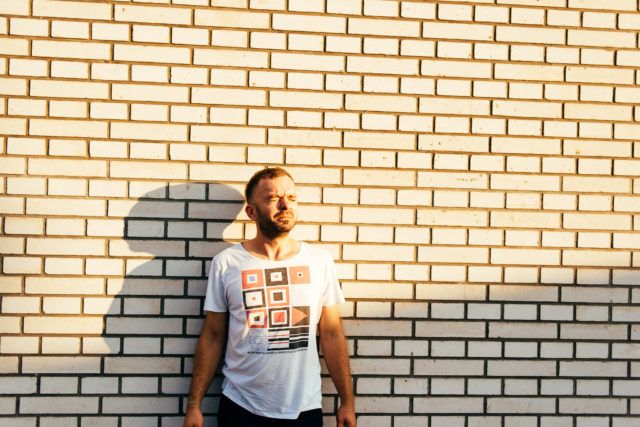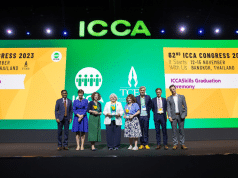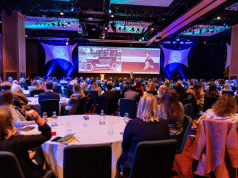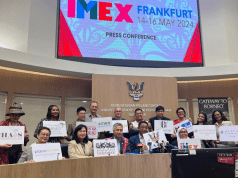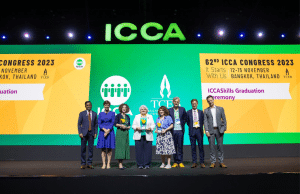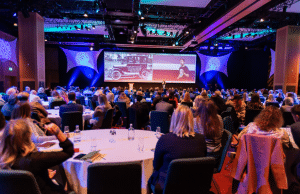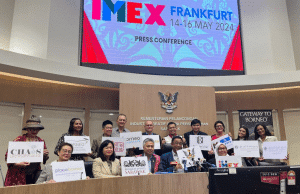Lubo Tomko, Experience and Meeting Designer at MeetingDesign, Communication Strategist, Entrepreneur.
Lubo believes in the exceptional power of communication and collaboration. He founded Extraordinary event agency, non-profit education organization and meeting design agency. All of them were built around his vision – to create a world where people enjoy connections with others, where they feel safe, empowered and fulfilled by working together.
He is passionate about people science, loves playing piano and guitar. From time to time, one can find him performing as a DJ in the smoke-filled clubs of the city of Bratislava.
Q: What is meeting design and why we need to rethink the way we organize our events?
Meeting design follows objectives and specific purpose of a meeting. Every meeting is different and specific. It has specific objectives, it connects specific people with specific expectations in specific time. So why most of the meetings are standardized? We are witnesses of old-fashioned meetings with ineffective knowledge transfer, in boring meeting rooms and formats.
Every well-designed meeting is like football match – you should know (in advance) why you are coming, what your role is, who your peers are, how to actively participate with others and, at the end of the day, you should enjoy it. Human interaction is very enjoyable for most of us, so why not to enjoy meetings and conferences? My and my colleagues at MeetingDesign.eu believe, that peer learning, collaboration, and enjoyment are essentials for every effective meeting.
Q: What is wrong with the format of meetings as we have them now?
We need to understand that standard formats used in meeting rooms (we can see it also in classrooms) are coming from a different era. Industrial era. In addition, this is very different from what we live now – what we want and what we need. Old-fashioned formats do not take into account how people learn and how they want to connect with the world. They do not take into account what they want and why they want it. Very often, there is no interaction or just a few opportunities to connect with others. From our experience and research we know, that this is what people want and need – they want to interact, share ideas, collaborate and even co-create together. They yearn to be active and important part of every meeting they attend… And we empower them to accomplish it.
Q: What would you do to make a meeting creative and powerful?
Look at the people. Explore what they want and why they want it. Ask them what they do not want, which sometimes even more important. What are their goals and expectations, who are they, what are their dreams and fears and what keeps them awake at night? Those are just a few questions, which can help you to teleport your meeting to the next level. At the same time, look at other stakeholders (organizers, partners, and sponsors) and ask similar questions. And then, find most appropriate solutions how to meet those expectations and bring it all together.
The job of a meeting designer is to know all available “tools” (physical environment, psychological environment and people in the room) and use them to shape and influence behavior. I am not sure if we are able to change behavior with one shot at the meeting, but we certainly can influence it.
Q: How can venues support meeting design?
Venues have to be more flexible. They need to re-think how they support meeting planners. They do not only rent space and serve food; they are much more than that. They are part of the whole process of planning meetings and that is why they have to attune with meeting planners. They need to ask more, understand more and offer more choices. Why not use a cellar, a laundry, or a warehouse if appropriate? Why not change the way they serve (brain) food and drinks? Every small change can have a huge impact on people’s behavior. Light, sound, smell, and staff of course! There are thousands of creative (and effective) ways for venues to help to create physical environment to support goals of the meeting and make it a memorable experience.
I believe that venue of the future is flexible physically (furniture, interior and exterior architecture, technology) and mentally (how people who work there think).
Q: Who is a “meeting designer”?
Unlike an event planner who is responsible for logistics and for the satisfaction of people, a meeting designer influences the behavior of people and is responsible for their involvement and overall experience. Meeting designer is well informed and is aware of all important specifics of the meeting. I believe good meeting designer is also the leader; he leads the whole meeting process and has a wide knowledge across a range of fields like psychology, sociology, neuroscience, technology and performing arts of course!
Q: Give us an example of one of your favorite and best-designed meetings?
Although we still live in the world of old-fashioned meetings with endless marathon-like lectures which turns attendees to zombies, craving for the next coffee break so they can check (without blame) what’s new on their favorited social network, there are more and more meetings which are very well designed. These are the results of diligent work of some enlightened organizers and my dear colleagues who turn the meetings into unforgettable experiences.
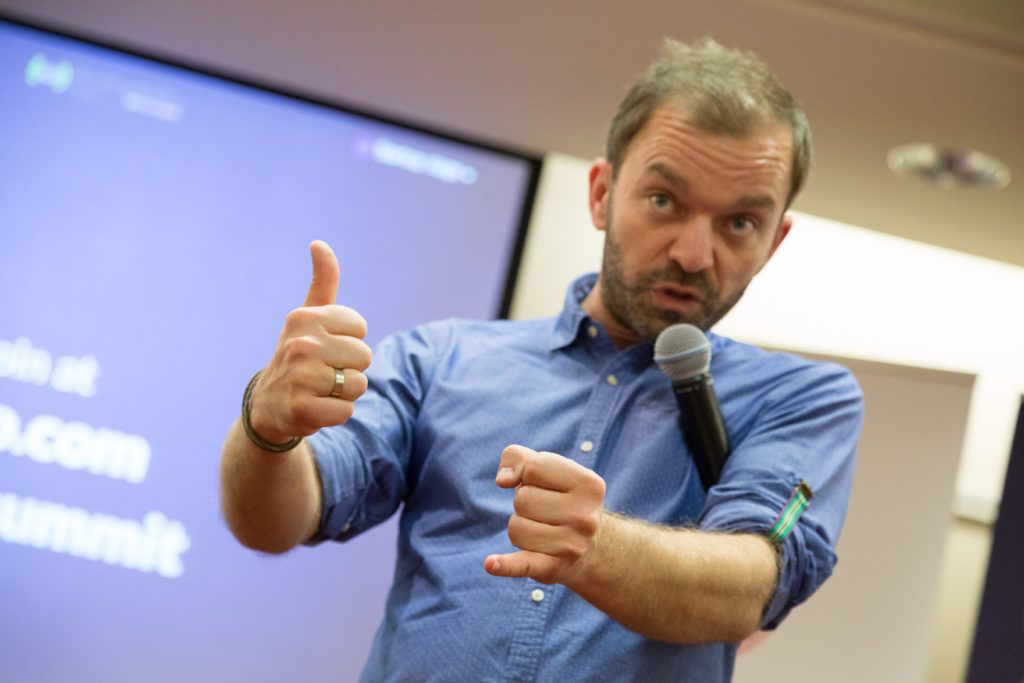
Q: If you could witness any event in history, which one would you choose?
I would like to talk with Da Vinci about his inventions, would love to stay with Hieronymus Bosch while he was painting his Garden of Earthly Delights or with Henryk Górecki composing Symphony No. 3. I would love to see the moment when Charles Darwin realized that it was not God`s job, but evolution. And it would be fantastic to experience the recording of Dark Side of the Moon or Unknown Pleasures… and there are thousands of other events I would love to witness. My birth, my death…Do you have a time machine?
Q: What did you learn to do last week?
…that multitasking can kill you.


